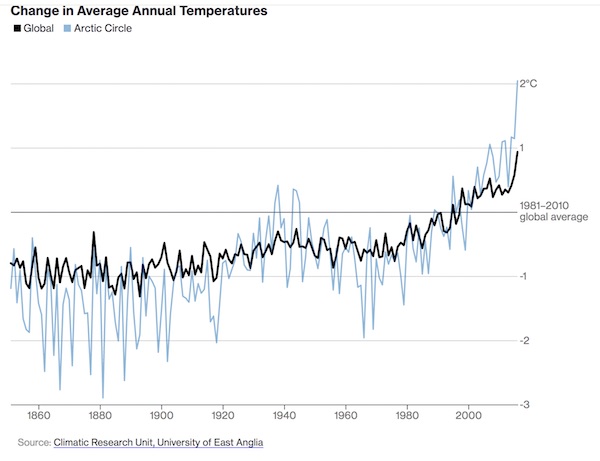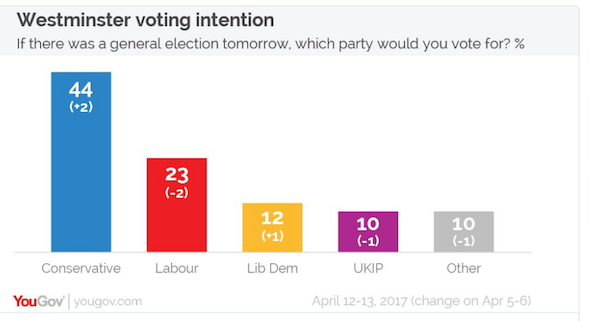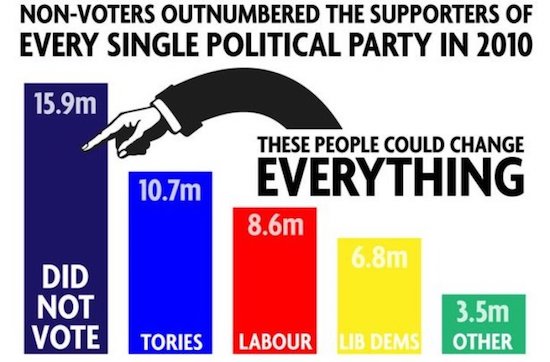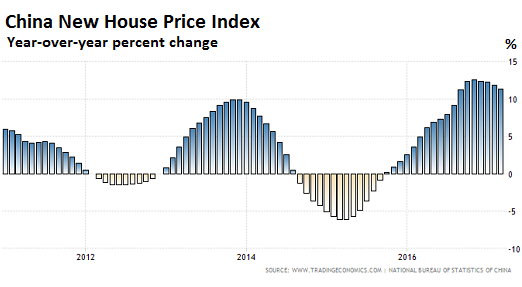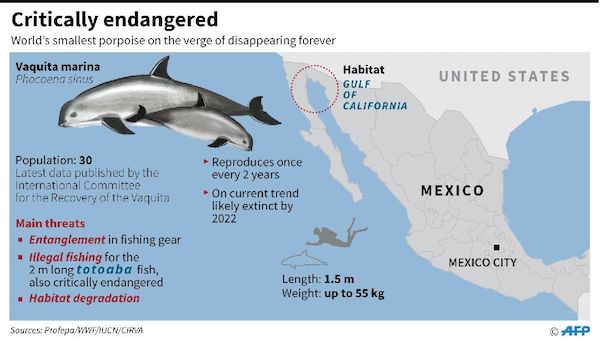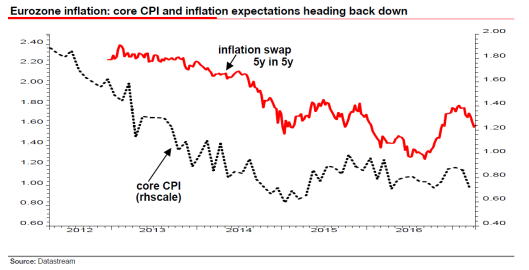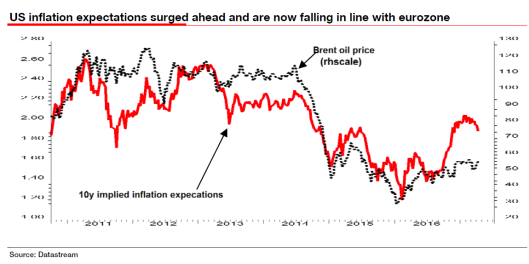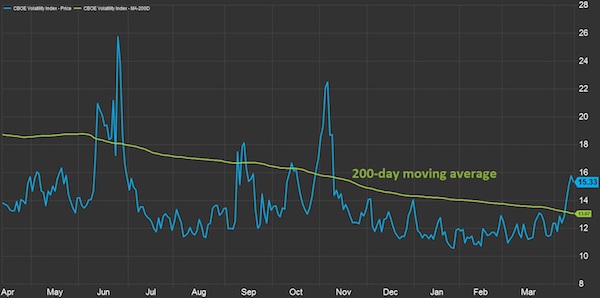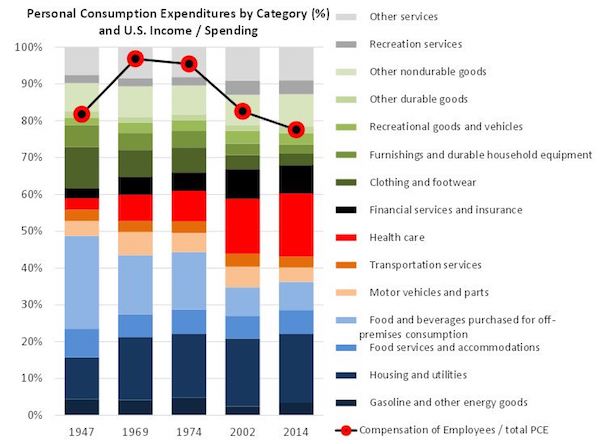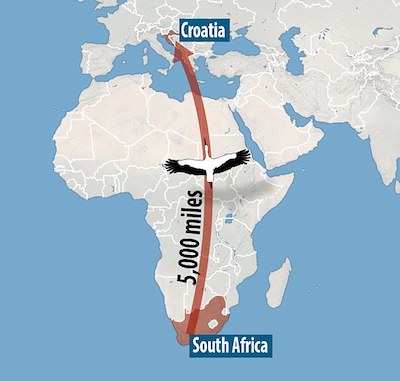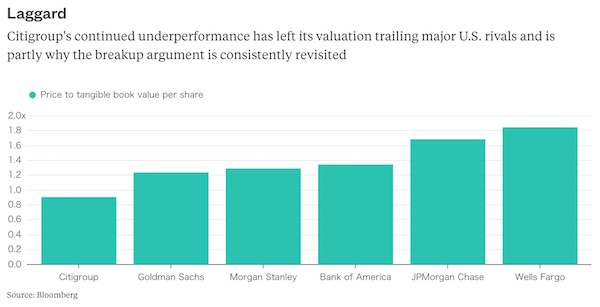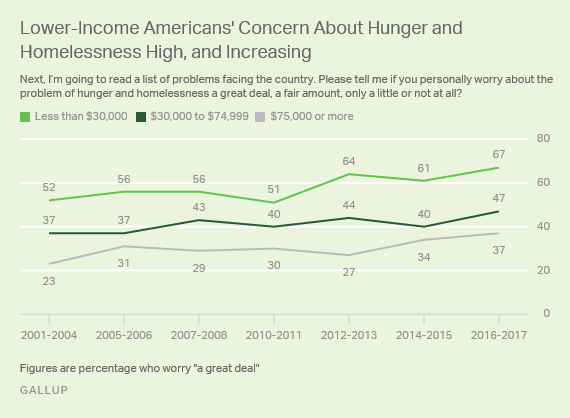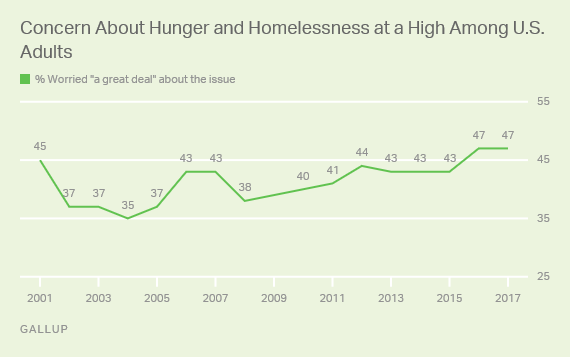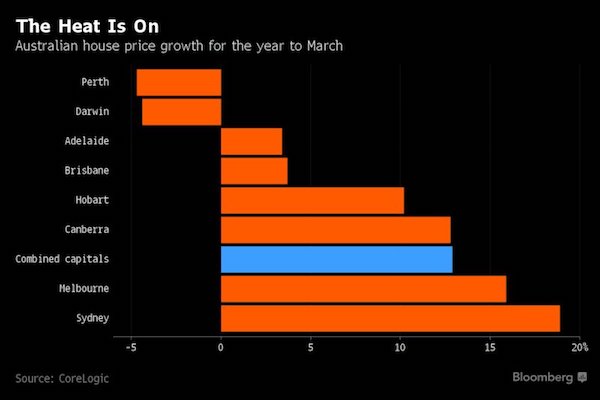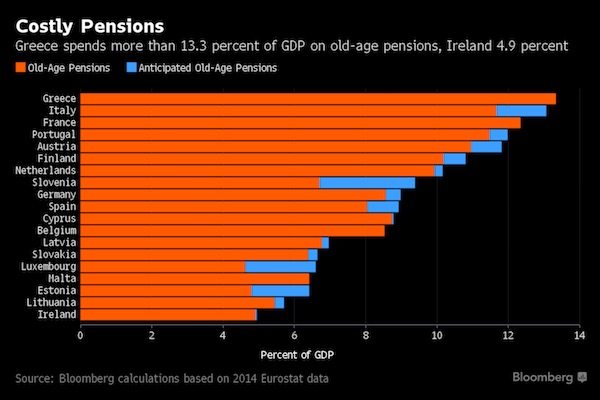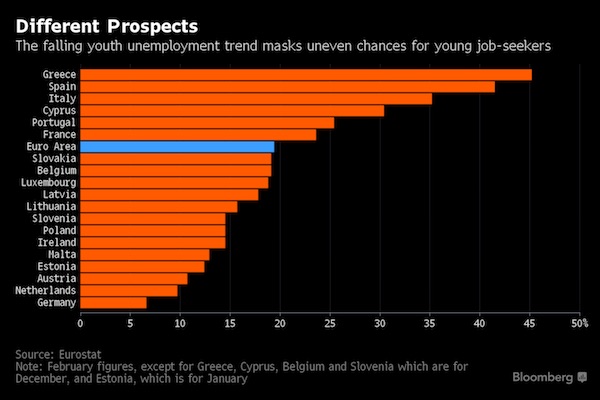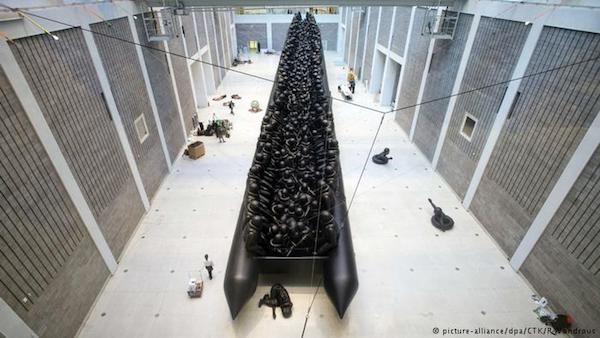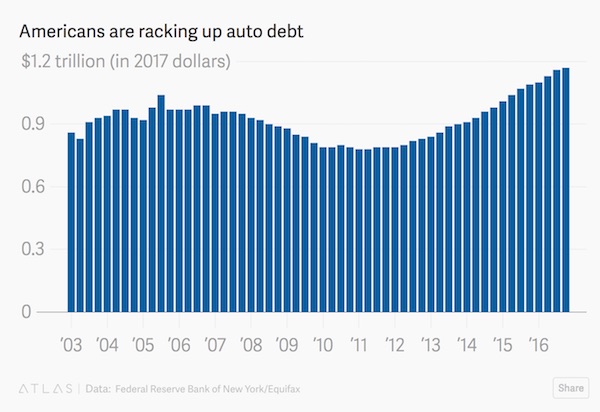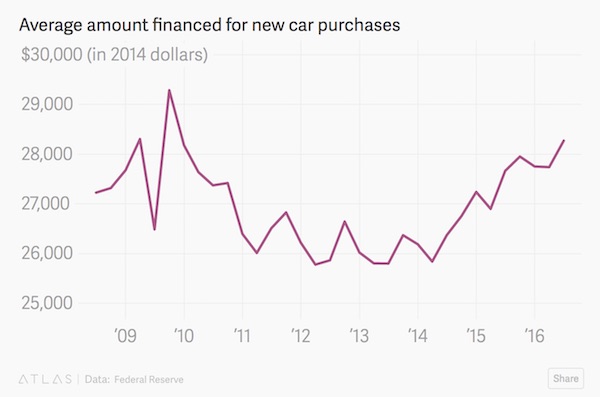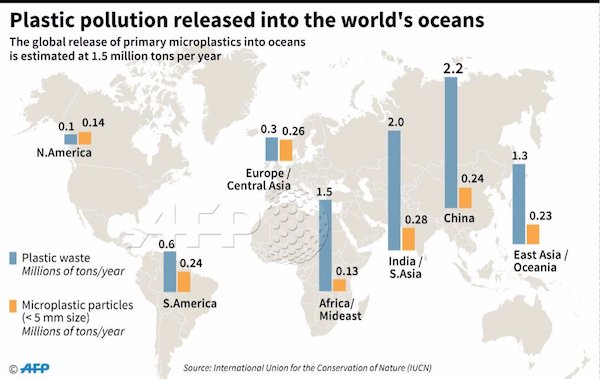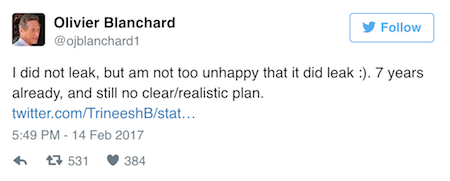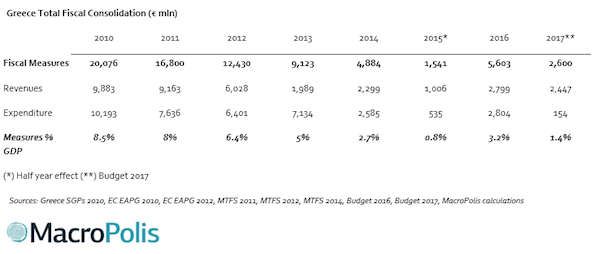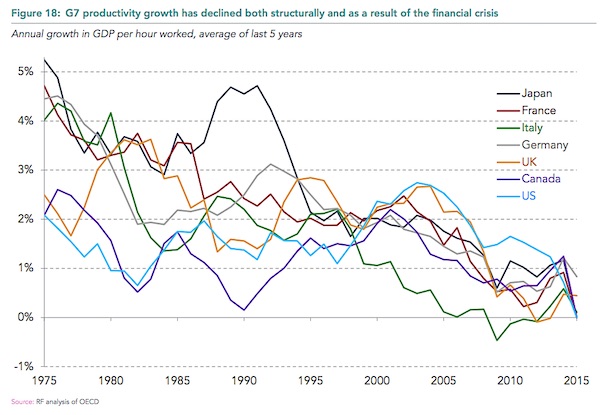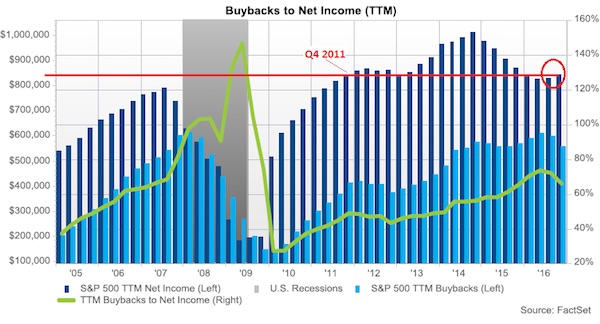
Fra Filippo Lippi 1406-1469 The Virgin Mary

Yeah, sure, just come look in Greece. Where the IMF itself demands ever more austerity. While claiming austerity is over.
• The IMF Says Austerity Is Over (Tel.)
Austerity is over as governments across the rich world increased spending last year and plan to keep their wallets open for the foreseeable future. After five years of belt tightening, the IMF says the era of spending cuts that followed the financial crisis is now at an end. “Advanced economies eased their fiscal stance by one-fifth of 1pc of GDP in 2016, breaking a five-year trend of gradual fiscal consolidation,” said the IMF in its fiscal monitor. “Their aggregate fiscal stance is expected to remain broadly neutral in 2017 as well as in the following years.” The British Government is still trying to reduce the deficit but at a slower pace, as Philip Hammond, the Chancellor, wanted to ease spending cuts following the vote for Brexit last year.
Although extra spending may be welcomed by those who want funds for specific projects or public services, the IMF is worried that governments are still heavily indebted and need to be careful with their budgets. The US government, for instance, should use the current economic growth spurt as a chance to get its finances under control. “In the United States, where the economy is close to full employment, fiscal consolidation could start next year to put debt firmly on a downward path,” the IMF said. That contrasts heavily with President Donald Trump’s plans to spend more on infrastructure and defence while cutting taxes, a combination that risks ramping up the budget deficit. “These policies are expected to generate rising deficits over the medium term.
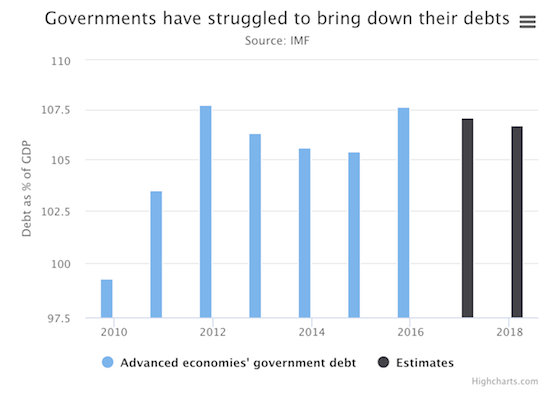
As a result, the US debt ratio is projected to increase continuously over the five-year forecast horizon,” the IMF warned. Overall the IMF believes government debts “should stabilise in the medium term, averaging more than 100pc of GDP, rather than decline as previously expected.” With debts that high, governments have to walk a fine line to use fiscal policy to support sustainable economic growth, but avoid dangerous over-indebtedness. “Fiscal policy is generally seen as a powerful tool for promoting inclusive growth and can contribute to stabilising the economy, particularly during deep recessions and when monetary policy has become less effective,” said the IMF.

How can anyone get this right if they can’t even properly define inflation?
• Reflation Trades of 2016 Deflate With Remarkable Speed (R.)
Stocks, bond yields and the dollar are all falling, yield curves are flattening and sterling is marching higher. The “reflation” trades of 2016 that were supposed to mark a turning point in global markets are fading. Fast. The question for investors is whether this is the play book for the rest of the year, or whether the trends of 2016 will resume in the second half of the year. What is clear is that much of the conviction with which investors went into 2017 has been lost. This week, Goldman Sachs ditched its long-standing bullish call on the U.S. dollar, and Deutsche Bank did likewise with their gloomy sterling outlook. Following the developed world’s two most seismic events last year – the U.S. presidential election and Brexit – investors around the world had positioned for a broad-based reflation trade.
Trump’s surprise election victory was supposed to unleash a wave of tax cuts, banking deregulation and fiscal largesse that would lift U.S. – and global – growth. Meanwhile, sterling’s 20% plunge after the Brexit vote was supposed to pave the way for a surge in UK equities and inflation. This, indeed, is how it played out as 2017 got underway. The Federal Reserve raised interest rates twice, the dollar reached a 14-year peak, Wall Street hit record highs, and government bond yield curves around the world steepened to the benefit of banks and financial stocks. But it is now unraveling, in large part due to a clear slowdown in U.S. growth and signs that global inflation is leveling off. Flatter yield curves where short- and long-term bond yields are close to each other suggest economic uncertainty.
[..] Citi’s economic surprises indexes for most of the world’s major economies have been heading south for the past month. The U.S. index has suddenly tumbled to lows not seen since November, and is below all its peers apart from Japan’s. And inflation expectations are showing signs of peaking too. The dollar is now down 2.5% year-to-date (but still up 2% since the U.S. election; U.S. bank stocks are down 10% from their February peak (but still up 20% from the election); and sterling is down 13% against the dollar since the Brexit vote last June (but it has been down as much as 20%). Estimates of first quarter U.S. growth have been slashed in recent weeks, with the Atlanta Fed’s closely-watched GDPNow model pointing to just 0.5% compared with around 2.5% less than two months ago.

All it takes is a few rate hikes.
• IMF Warns High US Corporate Leverage Could Threaten Financial Stability (WSJ)
U.S. corporate debt has ballooned on cheap credit to levels exceeding those prevailing just before the 2008 financial crisis, a potential threat to financial stability, the IMF warned in its latest review of the top threats to markets and banks. High corporate leverage could become problematic as the Federal Reserve raises short-term interest rates, the IMF warned, since higher borrowing costs could hinder the ability of firms to service debts. While borrowing costs remain low, debt servicing as a proportion of income has risen to its highest level since 2010, raising questions over firms’ ability to service their debts, according to the IMF’s study of nearly 4,000 U.S. firms accounting for about half of the economywide corporate sector balance sheet.
Companies have added $7.8 trillion of debt and other liabilities since 2010, while issuing $3 trillion of equity, net of buybacks, according to the IMF. The IMF’s message stands in contrast to the one being sent by the corporate bond market, which has been rallying for more than a year now. In early March, the average spread between junk-rated corporate bond yields and U.S. Treasury yields reached 3.44 percentage points, its lowest point since July 2014, according to Bloomberg Barclays data. It was most recently at 3.92 percentage points, still a very low level by historical standards, indicating that investors don’t see the debt as very risky.

So you buy mortgage backed securities, and then use them as collateral for a loan that lets you buy more securities. The serpent and the tail.
• Securities-Based Loans Are Scaring Fiscal Experts (NYP)
Forget subprime mortgages – one of Wall Street’s biggest risks doesn’t even show up on most banks’ balance sheets. Financial insiders are getting increasingly worried over the popularity of securities-based loans, or SBLs – a risky form of debt marketed to wealthy investors who typically use it to buy big assets like houses. The loans, which are taken against pools of stocks and bonds, offer borrowers cheap money fast without having to sell their underlying securities – an attractive option when the Dow is rising. But if markets crash, brokers can unload their clients’ holdings at fire-sale prices – and go after the house to cover the the vig. Fears of such ugly scenarios are growing as the Fed hikes interest rates, stocks are hitting all-time highs, and high-net-worth individuals are using this form of “shadow margin” to borrow more against stocks and bonds in their portfolios than ever before.
It’s not clear how much debt has been taken out in the form of SBLs, and a lack of regulatory oversight is partly to blame. Finra, the brokerage regulator, doesn’t track it, nor does the Securities and Exchange Commission — even though both have warned investors about the risks. However, several advisers surveyed by The Post estimated there is between $100 billion and $250 billion in outstanding SBLs among all brokerages. At least one concerned financial executive is in talks with lawyers to file a whistleblower case over the issue against a major bank with the Securities and Exchange Commission, The Post has learned. “When the market does turn, and it will at some point, it will be a major disaster,” said the exec, who requested confidentiality in exchange for speaking on the issue with The Post.

Here’s what I think will lead to UBI: poor old people. I skipped all the examples and links provided here. Do read them. “Where ‘P’ is pensions, ‘G’ is ‘government intervention’, ‘M’ is media oversight, and ‘I’ is insolvency.”
• Telling the truth: (P + G) – M = I (MarkGB)
Telling the truth has never been popular with politicians. They believe that it would prevent them from getting elected. Making new promises that will never be kept, and covering up the unaffordability of old promises…is how politicians get elected. The pattern is well worn and predictable: they use promises to ‘bribe’ people to vote for them, then they fail to deliver, then they blame someone else, then they change the subject…rinse and repeat…meanwhile the really important stuff get’s brushed under the carpet or kicked down the road…choose your own metaphor. There are few greater examples of this than the approaching crisis in pensions: A tale that has been decades in the telling, the climax will be a calamity that the corporate media doesn’t want to look at, and politicians never mention or acknowledge. Short of being strapped to a metal chair and entertained with an electrical massage they never will…which is a nice thought but regrettably still illegal, at least on the mainland.
[..] Despite the dark pleasure it would give me to label our political and economic elites: ‘as thick as two short planks’…the truth is that many of them are not. It’s far worse than that I’m afraid. They are ‘liars’. The politicians, central bankers, economists and journalists who understand the situation we face, but do nothing to address it, are discrediting the positions of responsibility that they hold…by lying through omission, by obfuscation, through denial, by issuing false and/or misleading information, and via the good old fashioned ‘art’ of bull$hitting straight to camera. Finally, and on a slightly lighter note, for anyone reading this who has been brainwashed with the idea that any theory or observation that can’t be reduced to an equation, is not real ‘economics’…here is an equation for you (but don’t expect your professor to like it):
(P + G) – M = I
Where ‘P’ is pensions, ‘G’ is ‘government intervention’, ‘M’ is media oversight, and ‘I’ is insolvency. Throughout recorded history, this equation has never failed to balance eventually…ask any legionnaire.

Another -more palatable?!- way of phrasing UBI.
• You’re Hired! A Guaranteed Job For Anyone Who Wants One (DJ)
Democrats have begun the presidency of Donald Trump exiled to the political wilderness. They’ve lost the White House, both houses of Congress, a shocking number of state governments, while the “blue state” vote has turned out to be really just the “blue city” vote. The party has cast about for solutions, battling it out over identity politics, the proper opposition strategy, and more. But Democrats might consider taking a cue from Trump himself. Namely, his relentless promises to bring back good-paying American jobs. “It’s the first and most consistent thing he discusses,” observed Mike Konczal, a fellow at the Roosevelt Institute, after reviewing Trump’s speeches. The President understands, as The New York Times’s Josh Barro noted, that most Americans think the purpose of private business is to provide good jobs, not merely turn a profit.
Even Trump’s xenophobia and white nationalism are not totally separate from this: Kicking out all the immigrants and rolling foreign competitors are critical components of how he would restore jobs. Democrats tend to treat jobs as the happy by-product of other goals like infrastructure revitalization or green energy projects. Or they treat deindustrialization and job dislocation as regrettable inevitabilities, offering training, unemployment insurance, health care, and so on to ameliorate their effects. All these policies are worthy. But a job is not merely a delivery mechanism for income that can be replaced by an alternative source. It’s a fundamental way that people assert their dignity, stake their claim in society, and understand their mutual obligations to one another. There’s pretty clear evidence that losing this social identity matters as much as the loss of financial security.
The damage done by long-term joblessness to mental and physical health is rivaled only by the death of a spouse. It wreaks havoc on marriages, families, mortality rates, alcoholism rates, and more. The 2008 crisis drove long-term unemployment into the stratosphere, and today it remains near a historic high. Trump went right at this problem, telling Michigan in October of 2016: “I am going to bring back your jobs.” Period. Democrats should consider making the same moon shot promise. But unlike Trump, they should back it up with a policy plan. And there’s an idea that could do the trick. It emerges naturally from progressive values. It’s big, bold, and could fit on a bumper sticker. It’s generally called the “job guarantee” or the “employer of last resort.” In a nutshell: Have the federal government guarantee employment, with benefits and a living wage, to every American willing and able to work.

More pension troubles. Today Japan, tomorrow your neck of the woods.
• Japan’s Middle-Aged ‘Parasite Singles’ Face Uncertain Future (R.)
Their youth long gone, members of Japan’s generation of “parasite singles” face a precarious future, wondering how to survive once the parents many depended on for years pass away. Some 4.5 million Japanese aged between 35 and 54 were living with their parents in 2016, according to a researcher at the Statistical Research and Training Institute on a demographic phenomena that emerged two decades ago, when youthful singles made headlines for mooching off parents to lead carefree lives. Now, without pensions or savings of their own, these middle-aged stay-at-homes threaten to place an extra burden on a social welfare system that is already creaking under pressure from Japan’s aging population and shrinking workforce.
Hiromi Tanaka once sang backup for pop groups, and epitomized the optimism of youth. “I got used to living in an unstable situation and figured somehow it would work out,” Tanaka told Reuters as she sat at the piano in a small parlor of an old house connected to her elderly mother’s next door. Now aged 54, Tanaka relies on income from giving private singing lessons to a dwindling number of students, and her mother’s pension to make ends meet. She has no pension plan of her own, and has used up most of her savings. “My father died last year so pension income was halved,” she said. “If things go on like this, my mother and I will fall together.” Tanaka is one of the growing ranks of “life-time singles,” whose numbers hit a record in 2015, according to data released this month that showed that among 50-year-olds, 1 in 4 men and 1 in 7 women were unmarried.
“During the ‘bubble economy’ until the mid-1990s, the 20-somethings were happily amusing themselves. They thought by the time they were in their 30s, they’d be married,” said Masahiro Yamada, a Chuo University sociologist who coined the term “parasite singles” in 1997. “But one-third never married and are now around age 50,” Yamada said. The trend is not only a factor behind Japan’s low birthrate and shrinking population. It also puts an extra damper on consumption since new household formation is a key driver of private spending. And since about 20% of the middle-aged stay-at-home singles rely on parents for support, they also threaten to weigh on social safety nets. “Once they use up inherited assets and savings, when nothing is left, they will go on the dole,” Yamada said.

Casey gets lots of things spectacularly wrong. The EU did need trade pacts etc., to enhance, guarantee quality control. The EU did a lot of good things. But it got taken over by the shit that floats to the top: “The European Union in Brussels is composed of a class of bureaucrats that are extremely well paid, have tremendous benefits, and have their own self-referencing little culture. They’re exactly the same kind of people that live within the Washington, D.C. beltway.”
• The EU’s Collapse Is Now “Imminent” (Doug Casey)
A free trade pact between different governments is unnecessary for free trade. An individual country interested in prosperity and freedom only needs to eliminate all import and export duties, and all import and export quotas. When a country has duties or quotas, it’s essentially putting itself under embargo, shooting its economy in the foot. Businesses should trade with whomever they want for their own advantage. But that wasn’t the way the Europeans did it. The Eurocrats, instead, created a treaty the size of a New York telephone book, regulating everything. This is the problem with the EU. They say it is about free trade, but really it’s about somebody’s arbitrary idea of “fair trade,” which amounts to regulating everything. In addition to its disastrous economic consequences, it creates misunderstandings and confusion in the mind of the average person.
Brussels has become another layer of bureaucracy on top of all the national layers and local layers for the average European to deal with. The European Union in Brussels is composed of a class of bureaucrats that are extremely well paid, have tremendous benefits, and have their own self-referencing little culture. They’re exactly the same kind of people that live within the Washington, D.C. beltway. The EU was built upon a foundation of sand, doomed to failure from the very start. The idea was ill-fated because the Swedes and the Sicilians are as different from each other as the Poles and the Irish. There are linguistic, religious, and cultural differences, and big differences in the standard of living. Artificial political constructs never last. The EU is great for the “elites” in Brussels; not so much for the average citizen.
Meanwhile, there’s a centrifugal force even within these European countries. In Spain, the Basques and the Catalans want to split off, and in the UK, the Scots want to make the United Kingdom quite a bit less united. You’ve got to remember that before Garibaldi, Italy was scores of little dukedoms and principalities that all spoke their own variations of the Italian language. And the same was true in what’s now Germany before Bismarck in 1871. In Italy 89% of the Venetians voted to separate a couple of years ago. The Italian South Tyrol region, where 70% of the people speak German, has a strong independence movement. There are movements in Corsica and a half dozen other departments in France. Even in Belgium, the home of the EU, the chances are excellent that Flanders will separate at some point.

Another feature brought to you by the Troika.
• Greece Needs To Start Having Babies Again or Face Financial Oblivion (Ind.)
People in Greece can’t afford to have more than one child, and many are opting to have none at all. Fertility doctor Minas Mastrominas tells the New York Times that some women have decided not to conceive, and single-child parents have been asking him to destroy their remaining embryos. He said: “After eight years of economic stagnation, they’re giving up on their dreams.” It isn’t just Greece suffering low birth rates. In fact the trend spreads to most of Europe, with Spain, Portugal and Italy also reporting dangerously low rates. Unemployment continues to be a serious issue in Greece. Rates are slightly lower than in 2016 when they were 23.9%, but are still very high at 23.5%. The slump has affected women more, with unemployment rates at 27% compared to 20% of men.
Child tax breaks and subsidies for large families have decreased, and the country stands at having to lowest budget in the EU for family and child benefits. During the height of the crisis, women postponed childbirth in favour of working. As the years dragged on, the rate of fertility decreased, making it biologically more difficult to conceive. Additionally, gender equality came to a standstill, and many women of ‘childbearing age’ were denied employment, or had their contract changed to part time involuntarily, as soon as they got pregnant. One of the most prominent areas that will be detrimentally affected is pensions and the welfare system. Additionally, according to Eurostat, such low birth rates – under 2.1 – could create a demographic disaster. This will have a knock-on effect on pensions, with fewer young people working.
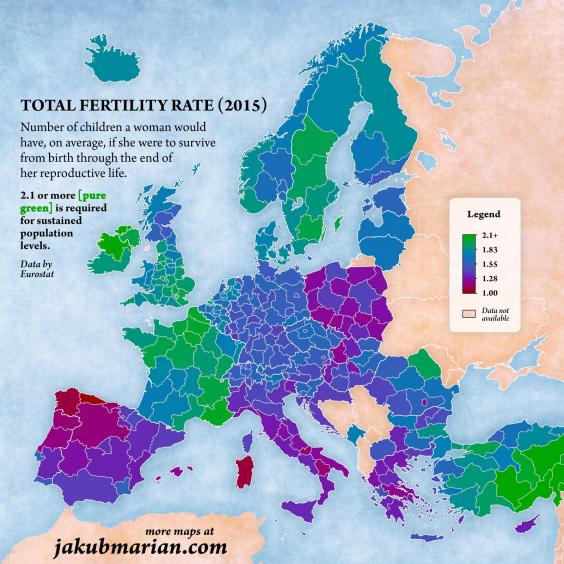

And the children we do have, we treat like this. No wonder there are fewer of them.
• 40% of Spanish Children Live in Poverty (EurA)
Spain has the EU’s third highest rate of child poverty, after Romania and Greece. EURACTIV Spain reports. After the economic crisis and years of austerity, child poverty is on the rise in wealthy countries, according to Unicef. In Spain, the proportion of children living below the poverty line increased by 9 percentage points between 2008 and 2014, to reach almost 40%. While child poverty in general rose significantly, the sharpest increase (56%) was among households of four people (two adults and two children) living on less than €700 per month, or €8,400 per year. Spain has the third widest gap in the EU, behind Latvia and Cyprus, between the levels of social protection offered to children and people over 65. During the crisis, Spain’s oldest citizens were much better protected than its youngest.
According to the Spanish Statistical Office, cited by Unicef, investment in the social protection of families fell by €11.5 billion between 2009 and 2015. Unicef also highlighted that families with children, large families, single-parent families and teenagers suffered the most from the effects of poverty. As for Madrid’s response to the crisis, the UN’s agency for children criticised its failure to contain child poverty. “Social protection policies are very fragmented and very unequal, with little focus on children,” Unicef said. For the organisation, this is due, among other causes, to the strong link between social security and workers’ contributions, and the fact that many of the state’s family aid programmes take the form of tax credits, which have little impact on low earners.

They’ll get it awfully wrong. It’s too late in the game.
• Ontario Set to Unveil Its Plan to Cool Toronto Housing (BBG)
Ontario is expected to impose a tax on “non-resident speculators” when it announces new measures Thursday to cool the red-hot housing market in Toronto, according to people familiar with the plans. The measures are intended to improve housing affordability, and address both supply and demand, the people said, speaking on condition of anonymity because the plans are not yet public. The measures are also said to include a new tax aimed at curbing purchases from non-resident speculators. [..] Home prices in the Toronto area climbed 6.2% last month, the biggest one-month gain on record, according to a benchmark price index by the Canadian Real Estate Association, and are up almost 30% in the past 12 months. Bank of Canada Governor Stephen Poloz said last week the price gains are “divorced” from the typical measures of demand, such as income growth and demographics, and said they are unsustainable.
“The focus has to be on runaway prices, more so than affordability per se,” Robert Hogue, a senior economist at Royal Bank of Canada, said in a phone interview. “The risk now is about expectations in the market, or market psychology, as you have both sellers and buyers expecting much higher prices.” The Toronto Star reported earlier, without saying where it got the information, that Sousa will announce some 10 measures ranging from rent controls to a new tax on speculators. The move comes a week before the province tables its budget on April 27, and two days after Sousa said the government recognizes that “now” is the time to address runaway home prices. Sousa on Tuesday met Canadian Finance Minister Bill Morneau and Toronto Mayor John Tory, who said that possible steps include taxing homes left empty for speculative purposes. Rent increases on newer buildings may be limited to about 1.5% above the inflation rate, which was at 2% in February, the Star reported.

Daddy, please tell the story again of why we have regulators!
• Feds Knew of 700 Wells Fargo Whistleblower Cases in 2010 (CNN)
America’s chief federal banking regulator admits it failed to act on numerous “red flags” at Wells Fargo that could have stopped the fake account scandal years earlier. One particularly alarming red flag that went unheeded: In January 2010, the regulator was aware of “700 cases of whistleblower complaints” about Wells Fargo’s sales tactics. An internal review published on Wednesday by the Office of the Comptroller of the Currency found that the regulator didn’t live up to its responsibilities. The report found that oversight of Wells Fargo was “untimely and ineffective” and federal examiners overseeing the bank “missed” several opportunities to uncover the problems that led to the creation of millions of fake accounts. The review painted a damning picture of the OCC’s ability to spot what in retrospect should have been obvious problems at one of the nation’s biggest banks.
The OCC did confront Carrie Tolstedt, then head of Wells Fargo’s community bank, about the stunning number of whistleblower claims. However, there are no records that show that federal inspectors “investigated the root cause,” or force Wells Fargo to probe it. It’s now clear that root cause of Wells Fargo’s problems – both the creation of fake accounts and the related 5,300 firings – was the notoriously aggressive sales goals targets set by senior management. At one point, rank and file bankers were asked to open as many as eight accounts per customer. That’s why the bank has eliminated them. From top management to Wells Fargo’s board of directors, everyone turned a blind eye to these issues. There’s evidence now that some of this was flagged as early as 2004 to management.

Stone states the obvious.
I confess I really had hopes for some conscience from Trump about America’s wars, but I was wrong – fooled again! – as I had been by the early Reagan, and less so by Bush 43. Reagan found his mantra with the “evil empire” rhetoric against Russia, which almost kicked off a nuclear war in 1983 – and Bush found his ‘us against the world’ crusade at 9/11, in which of course we’re still mired. It seems that Trump really has no ‘there’ there, far less a conscience, as he’s taken off the handcuffs on our war machine and turned it over to his glorified Generals – and he’s being praised for it by our ‘liberal’ media who continue to play at war so recklessly. What a tortured bind we’re in. There are intelligent people in Washington/New York, but they’ve lost their minds as they’ve been stampeded into a Syrian-Russian groupthink, a consensus without asking – ‘Who benefits from this latest gas attack?’
Certainly neither Assad nor Putin. The only benefits go to the terrorists who initiated the action to stave off their military defeat. It was a desperate gamble, but it worked because the Western media immediately got behind it with crude propagandizing about murdered babies, etc. No real investigation or time for a UN chemical unit to establish what happened, much less find a motive. Why would Assad do something so stupid when he’s clearly winning the civil war? No, I believe America has decided somewhere, in the crises of the Trump administration, that we will get into this war at any cost, under any circumstances – to, once again, change the secular regime in Syria, which has been, from the Bush era on, one of the top goals – next to Iran – of the neoconservatives. At the very least, we will cut out a chunk of northeastern Syria and call it a State.

Abetted by the Clintonites, they’ve done a wonderful job throwing America into chaos with probes into Russia’s alleged hacking of our election and Trump being their proxy candidate (now clearly disproved by his bombing attack) – and sadly, worst of all in some ways, admitting no memory of the same false flag incident in 2013, for which again Assad was blamed (see Seymour Hersh’s fascinating deconstruction of this US propaganda, ‘London Review of Books’ December 19, 2013, “Whose sarin?”). No memory, no history, no rules – or rather ‘American rules.’ No, this isn’t an accident or a one-off affair. This is the State deliberately misinforming the public through its corporate media and leads us to believe, as Mike Whitney points out in his brilliant analyses, “Will Washington Risk WW3” and “Syria: Where the Rubber Meets the Road,” that something far more sinister waits in the background.

BBG can’t even run a story on climate anymore without adding “..the emerging risk of an emboldened and growing Russian empire..”, and more of such useful hints.
• A Melting Arctic Changes Everything (BBG)
The story of the Arctic begins with temperature but it’s so much more—this is a tale about oil and economics, about humanity and science, about politics and borders and the emerging risk of an emboldened and growing Russian empire. The world as a whole has warmed about 0.9 degrees Celsius (1.7 degrees Fahrenheit) since 1880. Arctic temperatures have risen twice that amount during the same time period. The most recent year analyzed, October 2015 to September 2016, was 3.5C warmer than the early 1900s, according to the 2016 Arctic Report Card. Northern Canada, Svalbard, Norway and Russia’s Kara Sea reached an astounding 14C (25F) higher than normal last fall. Scientists refer to these dramatic physical changes as “Arctic amplification,” or positive feedback loops. It’s a little bit like compound interest.
A small change snowballs, and Arctic conditions become much less Arctic, much more quickly. “After studying the Arctic and its climate for three-and-a-half decades,” Mark Serreze, director of the National Snow and Ice Data center, wrote recently. “I have concluded that what has happened over the last year goes beyond even the extreme.” The heat is making quick work of its natural prey: ice. Scientists track the number of “freezing-degree days,” a running seasonal tally of the amount of time it’s been cold enough for water to freeze. The 2016-2017 winter season has seen a dramatic shortfall in coldness—more than 20% below the average, a record. Sea ice has diminished much faster than scientists and climate models anticipated. Last month set a new low for March, out-melting 2015 by 23,000 square miles.
Compared with the 1981-2010 baseline, the average September sea-ice minimum has been dropping by more than 13% per decade. A recent study in Nature Climate Change estimated that from 30-50% of sea ice loss is due to climate variability, while the rest occurs because of human activity. Receding ice decreases the Earth’s overall reflectivity, making the Arctic darker and therefore absorbing even more heat. The ice is not all the same age or thickness, although it has become somewhat more uniform. In 1985, about 45% of Arctic sea ice was made up of older and thicker multi-year ice. By 2016, that number shrank to 22%.
